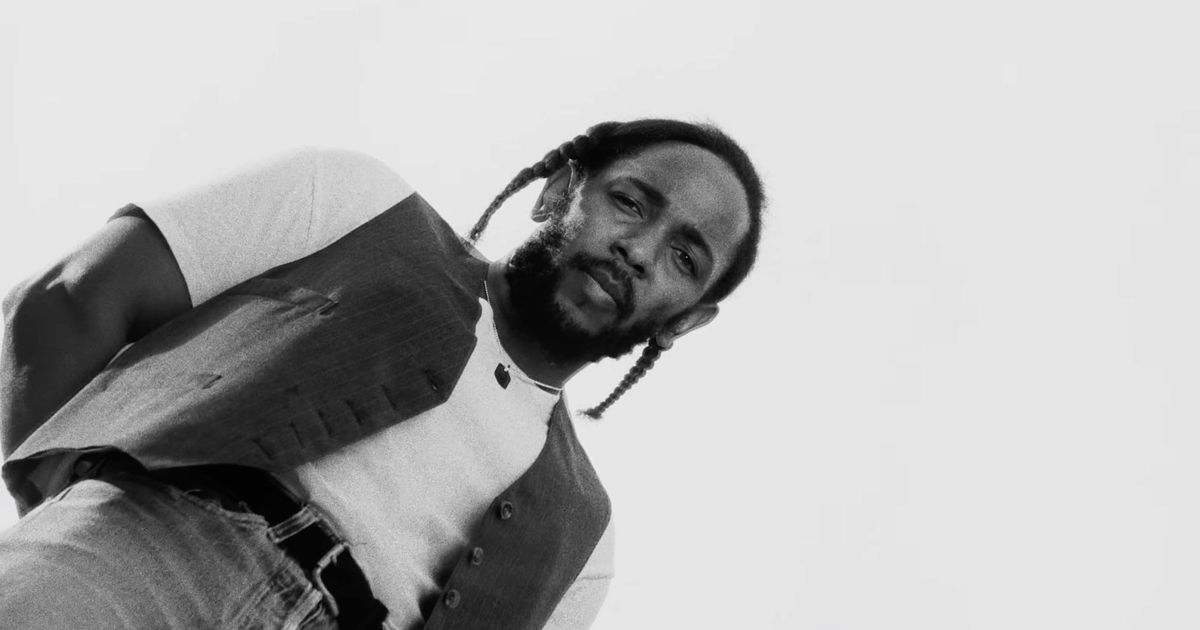
How Does That Make You Feel, Kendrick?
Kendrick Lamar is in a tight spot. People want the guy who wrote “Alright” and “Sing About Me, I’m Dying of Thirst” and “The Blacker the Berry” to come back and tell us we have what it takes to survive the compounding conflicts of our time, to save the soul of a pided nation. But he wants to be a better partner and son and nephew and cousin — a more present person in the relationships that matter the most to him. He wants to unpack generational trauma and unlearn toxic thought patterns. The Book of Matthew says no man can serve two masters; K. Dot peaced on us, got himself a therapist, and came back to share what he learned, to redraw some boundaries, and to refuse the titles of Voice of a Generation and Best Rapper Alive. His new album, Mr. Morale & the Big Steppers, delivers this news with an air of apology. He knows it’s not the message people want; he feels it’s the one they need. Morale is an album of provocations and denunciations and affirmations and realizations, a clump of ideas that don’t necessarily complement one another, a dramatization of the expurgation and upheaval that come before reconciliation and healing. It is forcing uncomfortable conversations. It is rebuffing hero worship. It is ditching narrative cohesion for messy sprawl, gesturing to pop but insisting on lethargic tempos, and calling out commercialism from the comfort of wealth. Morale is a perfectionist’s swan pe into his imperfections.
The album’s cross-purposes are intriguing. “The cat is out the bag,” Lamar raps in “Savior,” “I am not your savior.” He’s leading by example, though, staging a loud vanishing act and inviting listeners to spend less time pocket watching and gossiping and more time getting in tune with their greater purpose. These songs come with a light sprinkling of teachings from Oprah-approved German self-help guru Eckhart Tolle and heavy helpings of spirituality and psychoanalysis. Kendrick doesn’t want to be seen as a leader, but he is aware that there are people who take it to heart when he speaks. He wants us to know he’s human and fallible just like us. He also wants to map out the hundred ways we’re fucking up. He thinks woke scolds are hurting discourse, but he has a single denouncing materialism, and in other songs, he catalogues jewelry he has never worn and pools he never swam in. Like good kid, m.A.A.d city’s “Swimming Pools (Drank),” Morale’s “Father Time” — home to a soul-crushing chorus from Sampha about numbing pain with hard liquor — is a song that talks about the perils of drinking that will also make a killer drinking anthem. The Tolle stuff and the faint moral skepticism sit weirdly with the Christianity, but that’s nothing new for fans of Lamar, whose last album, DAMN., floated Black Hebrew Israelite ideas the church does not approve of. Multiple guest spots from Kodak Black — the talented South Florida rapper and aspiring Hebrew Israelite convert whose legal woes include pleading guilty to a lesser charge after a 2016 sexual assault allegation and a 2019 gun charge pardoned in 2021 by Donald Trump — don’t square with songs for women or calls for men to end cycles of abuse. (People think Kodak is here as provocation and counterpoint, a voice from the streets to play off the mansions and Jeeps, but what if he and Kendrick are just on similar faith journeys?)
As it pivots from bubbly love songs to prickly tracks about relationship woes, the album almost feels as if someone has tried to fit the honest unhappiness of Speakerboxx and the giddy romanticism of The Love Below into the same frame. Like the beloved OutKast release, Mr. Morale is a double. But really, there are three distinct threads braided into its 18-song track list. “We Cry Together,” opener “United in Grief,” and “Worldwide Steppers” lean into storytelling and wordplay over productions that reward the tricks Lamar pulls, like the elaborate set pieces in Tony Hawk’s Pro Skater games. “Father Time,” “Crown,” “Mother I Sober,” “Rich (Interlude),” and “Savior (Interlude)” luxuriate in orchestral flourishes and cascading piano notes. Then there are songs that might fly on the radio, bubbly R&B cuts like “Die Hard,” “Count Me Out,” “Savior,” and closer “Mirror,” as well as trap bangers “N95” and “Silent Hill.” In “Crown,” Lamar laments not being able to please everybody, but in a little over 70 minutes, Mr. Morale covers a lot of scenes and swats a lot of wasps’ nests.

Photo: Screenshot via Twitter
Mr. Morale’s resistance to easy solutions and hip-hop radio staples like “i,” “Loyalty,” and “Poetic Justice” makes for the rockiest ride in Lamar’s catalogue — no small feat for an artist who dabbled in primal-scream therapy with To Pimp a Butterfly’s “u” and spoke powerfully to death and dying in “Sing About Me.” The new songs take disorienting twists, like the chipper humming that graces a story about sleeping with the daughter of a white law-enforcement official who put an uncle in jail amid the jittery ragtime shuffle of “Worldwide Steppers” or the way this album surrounds its lighthearted tracks with the headiest shit imaginable. “Purple Hearts,” a summit with Atlanta vocalist and organic-food enthusiast Summer Walker and Wu-Tang mystic Ghostface Killah, chases the taxing “We Cry Together” with big hooks and ephemeral production that feels like someone ran a radio hit through YouTube’s 0.5x setting. The self-righteous ire of “Steppers” is followed by “Die Hard,” the smoothest love song in the batch. The lengthy story songs float between past and present in ways that make them tricky to follow. The time jumps from stories of family gatherings to church services to schoolyard arguments happening in “Auntie Diaries” feel both poignant and disconnected, like bad memories resurfacing out of order. (This is one where Kendrick’s knack for letting his characters speak for themselves would have come in handy. It’s missing a handle on how it must’ve felt to have family members, clergy, and even children mock your appearance and try to force you to live with a gender identity that doesn’t feel right, to say nothing of the sting of one of the strongest LGBTQ+ rights endorsements in a cishet mainstream-rap album using more gay slurs than even Eminem songs dare.) The same is true of “Mother I Sober,” which jumps generations to map out traumas visited upon Kendrick and his mother, whose abuse led her to believe her son had been treated the same way. The medium is the message. Whatever your problem, Mr. Morale wants you to talk it through. It doesn’t care which conclusions you arrive at as long as you’re dealing with the past and living in the now.
This is not the sentiment we expected from the Butterfly guy in 2022, two years after the country nearly cracked open in the wake of protests and the police brutality they were met with. (As was the case with Jay-Z’s 4:44, a lot of this advice gets easier to follow the more financial resources you can corral to carry them out. It’s simple to tap out when you can afford mansions and jet-setting. It must be easy to learn to center yourself and meditate when you have access to the man from the Oprah Winfrey Network miniseries about centering yourself and meditating.) But if detaching and dislodging from the old methods of thinking and patterns of creating art, if leaving obvious hits and Black Hippy and Top Dawg Entertainment and reassuring politics behind is what this man’s version of freedom looks like, good for him. Better this than the careful trend watching going on in the Donda albums. It beats the repetition and diminishing returns plaguing other rappers a decade into their major-label tenure. He didn’t have to knock as much shit over as he did this time. Mr. Morale might’ve been a chiller experience if dude had gotten more into psychedelics and Alan Watts talks than teetotaling and Tolle. There’s still time.
<p>Want more stories like this one? Subscribe now to support our journalism and get unlimited access to our coverage. If you prefer to read in print, you can also find this article in the May 23, 2022, issue of New York Magazine.</p> <h2>Related</h2> <ul> <li>TDE Played the Long Game </li> <li>We Are Not ‘Alright’ </li> <li>Kendrick Lamar’s <i>DAMN.</i> Is a Brilliant, Anxious Reflection of the World </li> </ul>





































































